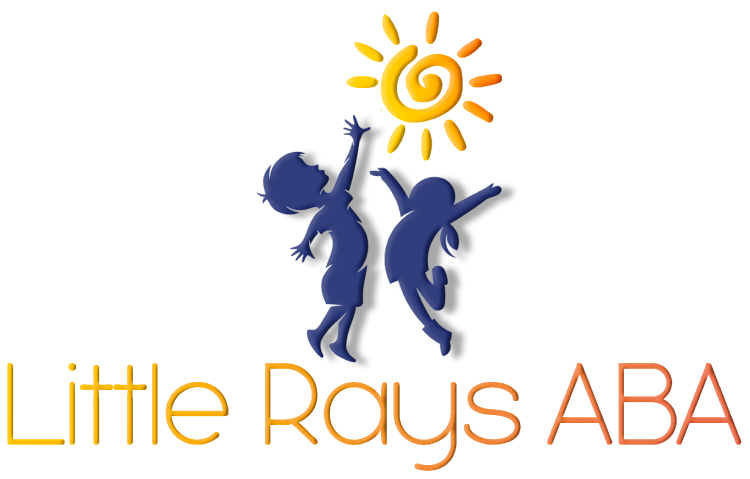
Top ABA Therapist Qualifications That Ensure Quality Care
Qualifications for ABA Therapists
When looking for a qualified Applied Behavior Analysis (ABA) therapist, it's essential to understand the different certifications and qualifications that ensure quality care. Two primary certifications to consider are the Board Certified Behavior Analyst (BCBA) and the Board Certified Assistant Behavior Analyst (BCaBA).
Understanding BCBA Certification
The most recognized certification for ABA therapists is the Board Certified Behavior Analyst (BCBA) credential. This certification is offered by the Behavior Analyst Certification Board (BACB) and is a hallmark of a highly qualified ABA therapist. To earn the BCBA certification, candidates must meet rigorous academic and practical requirements.
BCBA Certification Requirements:
- Educational Requirement: A master's degree in behavior analysis or a related field.
- Coursework: Completion of specific graduate-level coursework in behavior analysis.
- Practical Experience: Supervised practical experience, which can be met through one of three experience pathways (e.g., supervised independent fieldwork, practicum, or intensive practicum).
- BCBA Exam: Passing the BCBA certification exam.
- Certification Fee: A nonrefundable fee of $245 for the certification process.
For additional details, visit our page on ABA therapist certification.
BCBA vs. BCaBA Certification
While the BCBA certification is preferred for more advanced roles, the Board Certified Assistant Behavior Analyst (BCaBA) certification is an alternative pathway for those with a bachelor's degree.
BCaBA Certification Requirements:
- Educational Requirement: A bachelor's degree in behavior analysis or a related field.
- Coursework: Completion of specific undergraduate-level coursework in behavior analysis.
- Practical Experience: Supervised practical experience similar to the BCBA requirements but over a reduced number of hours.
- BCaBA Exam: Passing the BCaBA certification exam.
| Certification | Educational Level | Practical Experience | Exam Requirement | Fee |
|---|---|---|---|---|
| BCBA | Master's Degree | Supervised Experience | BCBA Exam | $245 |
| BCaBA | Bachelor's Degree | Supervised Experience | BCaBA Exam | Varies |
Both certifications play critical roles in ensuring quality ABA therapy, but they differ in the level of autonomy and responsibility. BCaBAs work under the supervision of BCBAs, making them an essential part of the ABA therapy team.
For more information on the distinctions and responsibilities of these certifications, you can read our article on ABA therapist job responsibilities and explore the specific ABA therapist skills required.
Understanding these certifications can help parents, families, and educators make informed decisions when selecting a qualified ABA therapist for children with autism and related conditions. For those pursuing a career in ABA therapy, these credentials are critical steps in ensuring the delivery of effective, evidence-based care.
State Licensure Requirements
Understanding state licensure requirements is critical for individuals seeking to become ABA therapists. These requirements can vary considerably, making it essential to consult with local licensing boards to ensure all criteria are met.
Variability in State Regulations
Licensure requirements for ABA therapists differ from one state to another. While some states may have minimal additional requirements beyond the BCBA certification, others might necessitate extra coursework, supervised practice, or specific examinations. It is crucial to verify with the local licensing board for precise details.
For example:
| State | Additional Licensure Requirements |
|---|---|
| California | No additional state licensure required |
| Florida | State licensure required, must pass state exam |
| New York | State certification needed, must complete additional supervised hours |
For an in-depth understanding of specific state requirements, one can refer to their local licensing boards or resources that outline detailed criteria by state.
Importance of Local Licensing Boards
Local licensing boards play a crucial role in regulating the practice of ABA therapy within each state. They ensure that all practicing therapists adhere to state-specific guidelines and maintain high ethical and professional standards.
Key responsibilities of local licensing boards include:
- Verification of credentials and certifications
- Administration of state-specific exams
- Monitoring continued education requirements
- Addressing complaints and imposing disciplinary actions, if necessary
Understanding the significance of these boards helps in ensuring that the ABA therapist one chooses is not only certified but also meets all state-specific requirements.
These insights are essential for ensuring quality care and effective treatment outcomes for individuals with autism.
Practical Experience in ABA Therapy
When evaluating the qualifications of ABA therapists, practical experience is of utmost importance. It encompasses hands-on client work and meticulous data collection and analysis, ensuring the provision of high-quality care.
Hands-On Client Work
Hands-on client work is a critical aspect of an ABA therapist's practical experience. This involves direct engagement with individuals on the autism spectrum, implementing ABA interventions, and working under the supervision of a certified BCBA. The experience gained through this supervised practice is essential for developing the necessary skills and confidence for independent practice.
ABA therapists, including Registered Behavior Technicians (RBTs), execute individualized plans devised by BCBAs. These plans focus on addressing specific behaviors and skills that need improvement. Daily engagement with clients allows therapists to apply various ABA techniques effectively.
The responsibilities of an RBT in hands-on client work include:
- Executing ABA intervention plans
- Providing daily engagement and reinforcement
- Collaborating with BCBAs for therapy plan adjustments
Data Collection and Analysis
Data collection and analysis play a significant role in ABA therapy. ABA therapists must excel in tracking progress, making data-driven decisions, and adapting interventions based on individual client needs.
Data recording involves meticulously logging observed behaviors and responses during therapy sessions. This information is crucial for evaluating the effectiveness of interventions. Observation and data analysis help in identifying behavior patterns and trends, which are then used to modify and optimize treatment plans.
Key aspects of data collection and analysis include:
- Recording precise behavioral data during sessions
- Analyzing collected data to identify progress and setbacks
- Adjusting strategies based on data trends to improve outcomes
By integrating hands-on client work with rigorous data collection and analysis, ABA therapists ensure that their interventions are effective and tailored to each individual's needs.
| Component | Role | Importance |
|---|---|---|
| Hands-On Client Work | RBTs and BCBAs | Develops practical skills, confidence |
| Data Collection | RBTs | Tracks progress, informs decisions |
| Data Analysis | BCBAs | Adapts interventions, enhances effectiveness |
Practical experience in ABA therapy is essential for ensuring that therapists are equipped to provide the highest quality of care. By focusing on both hands-on client work and meticulous data practices, therapists can effectively support the progress and development of individuals with autism.
Continuing Education for ABA Therapists
Continuing education is a critical component for ABA therapists to ensure quality care and maintain their professional credentials. Engaging in regular learning activities helps therapists stay updated with the latest research, methodologies, and ethical practices in the field of Applied Behavior Analysis (ABA).
The Need for Ongoing Learning
ABA therapists must continuously refine their skills and knowledge to provide the best possible care for their clients. The field of ABA is dynamic, with new research and advancements emerging regularly. Continuous education is crucial in maintaining competence and staying informed about ethical practices.
Training in ABA typically begins before practitioners start working with clients and continues throughout their careers. This ongoing learning process ensures that therapists can adapt to new evidence-based practices and emerging trends.
To stay compliant and effective, ABA therapists need to engage in ongoing training that aligns with the ethical guidelines of the profession. Certified professionals must maintain their credentials by completing continuing education units (CEUs) and adhering to the ethical standards outlined in the ABA Code of Ethics.
The Behavior Analyst Certification Board (BACB) mandates that Board Certified Behavior Analysts (BCBAs) and Registered Behavior Technicians (RBTs) possess a profound understanding of evidence-based behavioral training. Evidence-Based Practice (EBP) combines the best available research, clinical expertise, and client values, ensuring interventions are effective and tailored to each client's unique context.
Importance of CEUs
Continuing Education Units (CEUs) are essential for ABA therapists to maintain their certification. The BACB requires BCBAs to complete a specific number of CEUs within their certification cycle. These units cover various topics, including ethical practice, behavior assessment, and intervention strategies.
| Certification | CEU Requirements (per cycle) |
|---|---|
| BCBA (Board Certified Behavior Analyst) | 32 units |
| BCaBA (Board Certified Assistant Behavior Analyst) | 20 units |
| RBT (Registered Behavior Technician) | 0.5 units per month |
Continuing education units allow therapists to expand their knowledge base and stay current with industry standards. Completing CEUs helps therapists remain competent and provides opportunities to learn new skills and techniques that can be applied in their practice. Failure to complete the required CEUs can result in disciplinary actions, including the revocation of certification.
ABA therapists should seek out CEU opportunities from reputable sources that align with their professional goals and the needs of their clients.
Examination for ABA Certification
For individuals pursuing a career as an ABA therapist, obtaining the right qualifications is crucial. One of the key steps in becoming a certified ABA therapist is passing the BCBA exam.
Overview of the BCBA Exam
The Board Certified Behavior Analyst (BCBA) exam is an essential part of the certification process for aspiring ABA therapists. Governed by the Behavior Analyst Certification Board (BACB), this examination evaluates a candidate's knowledge and skills in applied behavior analysis. The BCBA exam consists of 150 multiple-choice questions based on the fourth edition of the BCBA/BCaBA task list.
The examination covers a comprehensive range of content areas, testing candidates on:
- Measurement and Data Analysis: Techniques for data collection and interpretation.
- Experimental Design: Understanding different research methods and their applications.
- Behavior-Change Procedures: Strategies for modifying behavior.
- Ethical and Professional Conduct: Adhering to ethical guidelines and standards in practice.
Preparation and Retake Options
Preparation for the BCBA exam is a critical step in ensuring success. Candidates often utilize various resources, including study guides, practice exams, and coursework from accredited ABA programs. The BACB also offers a chart depicting the BCBA exam passing rates across different programs in the United States, providing valuable insight for candidates.
A structured study plan can greatly enhance a candidate’s chances of passing the BCBA exam. Key preparation tips include:
- Regular Study Sessions: Consistent, daily study routines focusing on different content areas.
- Practice Exams: Taking multiple practice tests to identify strengths and weaknesses.
- Review Courses: Enrolling in review courses designed specifically for the BCBA exam.
For candidates who do not pass the exam on their first attempt, retake options are available. Candidates can retake the exam within two years of their initial application approval. Understanding the retake policy and planning accordingly can help candidates manage their certification timeline effectively.
| Exam Component | Description | Notes |
|---|---|---|
| Total Questions | 150 multiple-choice | Based on BCBA/BCaBA task list |
| Core Areas | Measurement, Experimental Design, Behavior-Change Procedures, Ethical Conduct | Comprehensive coverage |
| Retake Policy | Within two years of initial application approval | Plan accordingly |
Understanding these qualifications ensures quality care and competence within ABA therapy.
Master's Degree in ABA Therapy
Relevance of Advanced Education
A master’s degree is often a key criterion for becoming a Board Certified Behavior Analyst (BCBA), which is a standard credential for ABA therapists. Advanced education in ABA therapy equips therapists with specialized knowledge and skills crucial for providing effective care to individuals with Autism Spectrum Disorder (ASD). It ensures that therapists have a deep understanding of behavioral principles and evidence-based practices, which are foundational for aba therapist qualifications. A master's degree is pivotal for gaining the theoretical background and practical expertise necessary for a successful career in ABA therapy.
Advanced education also emphasizes ethical decision-making and adherence to professional guidelines, which are vital for maintaining the integrity of ABA interventions. Evidence-Based Practice (EBP) integrates the best available research, clinical expertise, and client values to tailor interventions effectively and ensure they meet each client's unique needs.
Topics Covered in Graduate Programs
Graduate programs in ABA therapy cover a wide range of topics designed to prepare therapists for the various challenges they will encounter in their practice. These topics provide a thorough grounding in both theoretical knowledge and practical application. The following are essential components of a master's program in ABA:
Behavioral Assessment:
- Techniques for identifying and assessing behavioral issues.
- Tools for evaluating the effectiveness of interventions.
Intervention Strategies:
- Development and implementation of behavior modification plans.
- Techniques for reinforcing positive behavior and reducing negative behavior.
Ethics:
- Understanding ethical guidelines and professional standards in ABA.
- Ethical decision-making processes in therapeutic settings.
Research Methods:
- Conducting research to inform clinical practice.
- Data collection and analysis to assess intervention outcomes.
Graduate programs often combine coursework with practical experience. This dual approach ensures that future ABA therapists not only understand the theoretical underpinnings of their work but also have hands-on experience applying these principles in real-world settings. This experience is crucial for developing the practical skills necessary for effective therapy.
| Course | Description |
|---|---|
| Behavioral Assessment | Techniques and tools for evaluating behaviors |
| Intervention Strategies | Methods for implementing behavior modification plans |
| Ethics | Professional and ethical guidelines in ABA |
| Research Methods | Techniques for conducting and analyzing research |
Advanced education in ABA therapy is invaluable for therapists seeking to deliver high-quality care. It equips them with the knowledge, skills, and ethical grounding required to make a significant positive impact on the lives of individuals with ASD.
SOURCES:
https://teach.com/online-ed/psychology-degrees/online-masters-applied-behavior-analysis/aba-certification/
https://www.psychology.org/resources/bcba-meaning-career-overview/
https://www.purdueglobal.edu/blog/psychology/bcba-vs-bcaba/
https://www.abainternational.org/portal/continuing-education.aspx
https://centralreach.com/blog/10-study-strategies-to-prepare-you-for-the-bcba-exam/
Related Posts





